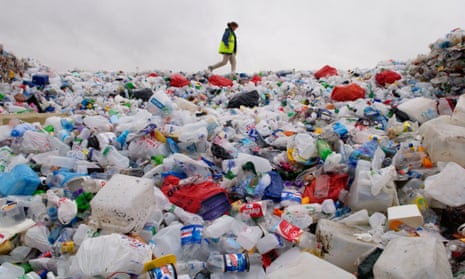British consumers are in the dark about exactly what household waste they can recycle, a new poll has revealed, with plastic soap dispenser tops, dirty kitchen roll and wrapping paper topping the list of things they wrongly consider recyclable.
Research shows that Britons are more aware than ever of how recycling can help the environment. However, the majority are putting out contaminated recycling due to common misunderstandings, thereby doing more harm than good.
Eight out of 10 Britons believe recycling makes a difference, the research for the British Science Association (BSA) shows, yet when quizzed on exactly what items can go into their recycling bins, none of the 2,000 adult Britons surveyed got full marks.
The results of the poll also show that millennials, often portrayed as environmentally conscious, are less inclined to recycle than older generations.
Among the most common blunders made at home and work, 44% are putting hand soap pump dispenser tops in their recycling bins (they should be removed from the hand soap bottle), 34% incorrectly think dirty kitchen roll is recyclable and more than 20% are recycling coffee cups, greasy pizza boxes, and plastic bags.
A fifth of 25- to 34-year-olds said they find recycling too time-consuming and are not in the habit of recycling, while only 6% of over-55s said the same.
“It’s encouraging to see lots of people are concerned about plastic waste, but what you can and can’t put in the recycle bin can often be confusing,” said Ivvet Modinou, head of engagement at the BSA. “The industry as a whole needs to address this issue if we are to collectively improve recycling performance. Manufacturers of plastic products could provide clearer information on packaging and local councils should be actively working to improve guidance for local residents.”
Craig Stephens, campaign manager for Recycle Now, added: “79% of plastic waste ever created is still in our environment. While more and more of us are recycling, it’s clear that it’s as important as ever for everyone to go the extra mile to protect our planet.”

Comments (…)
Sign in or create your Guardian account to join the discussion